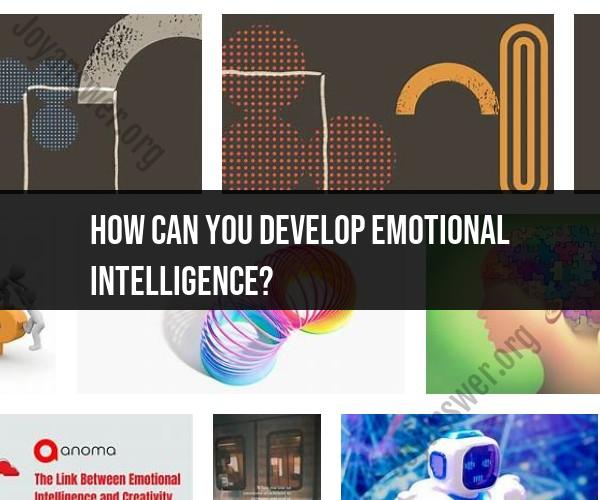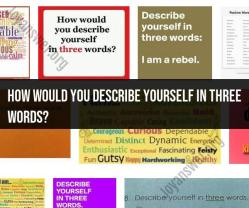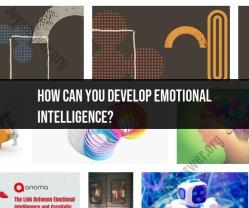How can you develop emotional intelligence?
Emotional intelligence (EI) is a crucial skill that empowers individuals to manage emotions, navigate social interactions, and achieve personal growth. This guide outlines effective strategies to develop and enhance emotional intelligence for a more fulfilling and successful life.
Introduction to Emotional Intelligence
Emotional intelligence encompasses self-awareness, empathy, self-regulation, motivation, and social skills, all of which contribute to overall emotional well-being and effective communication.
Benefits of Developing Emotional Intelligence
Developing EI offers numerous benefits:
- Enhanced Relationships: Improved understanding and communication with others.
- Stress Management: Better coping mechanisms for challenging situations.
- Conflict Resolution: Skillful handling of conflicts and disagreements.
- Personal Growth: A deeper understanding of oneself and continuous self-improvement.
Strategies for Developing Emotional Intelligence
Here are effective strategies to cultivate and strengthen EI:
1. Self-Awareness
Regularly reflect on your emotions, triggers, and reactions. Understand your strengths, weaknesses, and values.
2. Practice Empathy
Put yourself in others' shoes to understand their feelings and perspectives. Listen actively and validate their emotions.
3. Self-Regulation
Learn to manage your emotions and reactions. Practice mindfulness, deep breathing, and positive self-talk.
4. Improve Social Skills
Enhance your communication, conflict resolution, and collaboration skills. Foster healthy relationships and connections.
5. Enhance Motivation
Set meaningful goals, both short-term and long-term. Stay resilient and motivated despite setbacks.
6. Seek Feedback
Encourage honest feedback from friends, family, or mentors to gain insights into your emotional strengths and areas for growth.
7. Continuous Learning
Read books, attend workshops, and engage in self-improvement activities that focus on emotional intelligence.
Applying Emotional Intelligence
Apply your developed EI in various aspects of life:
- Workplace: Navigate office dynamics, collaborate effectively, and manage stress.
- Relationships: Strengthen bonds, resolve conflicts, and communicate openly.
- Personal Growth: Drive self-improvement, build resilience, and maintain emotional balance.
Conclusion
Developing emotional intelligence is a transformative journey that positively impacts personal, social, and professional aspects of life. By practicing self-awareness, empathy, self-regulation, and other strategies, individuals can foster meaningful relationships, effective communication, and personal growth, leading to a more fulfilling and emotionally intelligent life.



